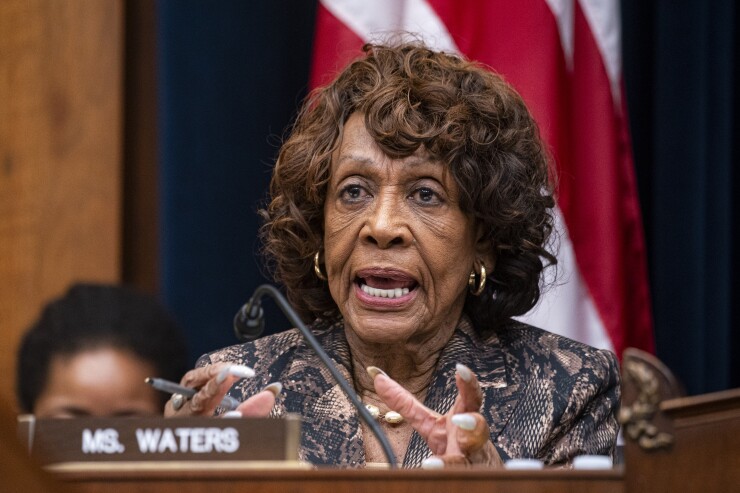WASHINGTON — Several community groups, and
Capital One earlier this week
The plan included $44 billion of total community development investment and financing, and was negotiated with the Woodstock Institute, the National Association for Latino Community Asset Builders, NeighborWorks America and the Opportunity Finance Network.
Overall, the plan touts $265 billion in lending, investment and philanthropy over five years. A robust community lending plan can help banks win regulatory approval for deals from regulators skeptical about the impact a merger might have on the public.
Still, some prominent community investment groups
"This merger is a terrible, horrible, no good, very bad idea," said Jesse Van Tol, president and CEO of the National Community Reinvestment Coalition. "I could just end my testimony there, and it's not just because it would create another "too big to fail" bank, and not just because it would undermine competition and prices, it's also because Capital One is a bad actor with a long history of consumer abuse."
He also argued that Capital One's plan doesn't make as large of an increase in community investments as the bank said that it would in the community plan announced earlier this week.
"The plan does not create a sufficient public benefit, that is the biggest problem with this merger," Van Tol said. "To fix that, Capital One would need to make the plan an order of magnitude bigger and consider taking Discover's innovative housing and small-business finance programs nationwide at scale, along with many other changes."
Others focused on the impact to the credit card market. Patrick Woodall, managing director for policy at Americans for Financial Reform, said that the deal would "eliminate the rivalry between Capital One and Discover for middle-income consumers."
"Capital One could flex its market power and raise prices on virtually half of consumers," he said. "People just can't switch to other cards in the face of price gouging."
Ranking member of the House Financial Services Committee, Rep. Maxine Waters, D-Calif., urged the regulators to reject the deal.
"The law requires regulators consider the impact a merger has on competition, financial stability and the convenience and needs of affected communities," she said. "The proposed merger of Capital One and Discover, creating the largest credit card issuer and sixth largest commercial bank, must be rejected because it fails these tests."
While community buy-in from groups like these could go a long way in soothing regulators, who are already reconsidering how they weigh dealmaking applications, the two financial firms' community deal is a point in its favor, and there were many groups in favor of the merger and the community investment plan.
"Capital One did a strong job framing the debate and that much of the criticism was what we expected," TD Cowen analyst Jaret Seiberg said in a note. "Nothing we heard today changes our view that the bank regulators lack a statutory reason to block the deal."
Many in the hearing supported the merger and the community investment deal.
"My district is very close to the Capital One headquarters, right next door in fact," said Richard Sullivan, member of the Virginia House of Delegates from the 6th district. "I've lived in this community for over 50 years, and I've watched as Capital One has grown into one of Virginia's largest private employers, one of America's most recognizable brands and a wonderful corporate citizen in our community."
Sherry Goldstein, vice president of operations at the New York-based Fortune Society, an organization that helps formerly incarcerated people reintegrate into society, said that Capital One helped the organization in the aftermath of the 2008 financial crisis continue building a housing complex for individuals with criminal legal history, as well as for formerly unhoused people and low-income residents in the community.
"We couldn't have done this without Capital One," she said. "They've also supported us with other community projects, so we've just known them to be an excellent partner throughout."
Rachel Glassman, director of corporate partnerships at Miriam's Kitchen, a Washington D.C.-based organization that helps with unhoused individuals' needs, said that Capital One has partnered with the group financially, and has had employees volunteer over the years.
"We look forward to continuing to partner with them, seeing how all of this plays out," she said.







